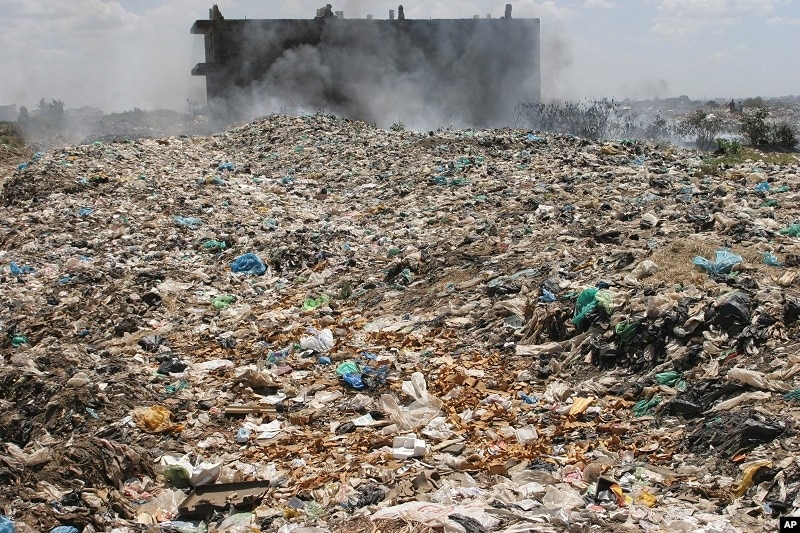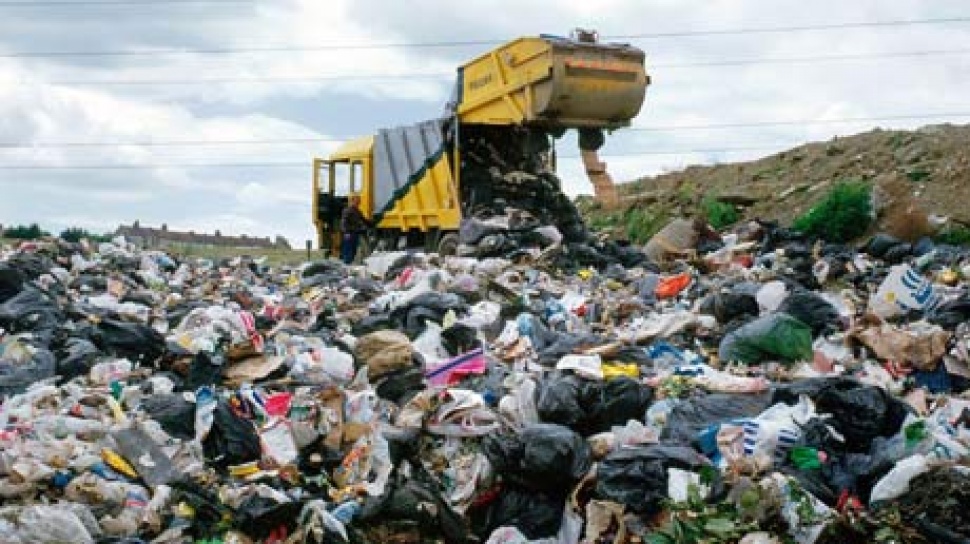Waste is unwanted and discarded materials and objects. It is often also called trash, garbage, rubbish, or junk. There are a number of different types of waste. It can exist as a solid, liquid, or gas or as waste heat. Garbage is the waste produced daily in our homes. It includes different waste like food, chemical substances, paper, broken furniture, used containers, and other things.
I've taken the following descriptions from Wikipedia, and decided these waste to be ones that are most important to know about.
Industrial waste is the waste produced by industrial activity which includes any material that is rendered useless during a manufacturing process such as that of factories, mills and mines. It has existed since the outset of the industrial revolution. Sewage treatment can be used to clean water tainted with industrial waste. Some examples of industrial waste are paints, sand paper, paper products, industrial by-products, metals,radioactive wastes,etc.

Toxic waste, chemical waste, Industrial solid waste and Municipal solid waste are designations of industrial waste.
Guide for Industrial Waste Management
Radioactive wastes are wastes that contain radioactive material. Radioactive wastes are usually by-products of nuclear power generation and other applications of nuclear fission or nuclear technology, such as research and medicine. Radioactive waste is hazardous to most forms of life and the environment, and is regulated by government agencies in order to protect human health and the environment.
BioMedical Waste, (BMW), consists of solids, liquids, sharps, and laboratory waste that are potentially infectious or dangerous and are considered biowaste. It must be properly managed to protect the general public, specifically healthcare and sanitation workers who are regularly exposed to biomedical waste as an occupational hazard. In hospitals, medical waste, otherwise known as clinical waste, normally refers to waste products that cannot be considered general waste, produced from healthcare premises, such as hospitals, clinics, doctors offices, veterinary hospitals and labs.
Wastewater, also written as waste water, is any water that has been adversely affected in quality by anthropogenic influence. Municipal wastewater is usually conveyed in a combined sewer or sanitary sewer, and treated at a wastewater treatment plant. Treated wastewater is discharged into a receiving water via an effluent sewer. Wastewaters generated in areas without access to centralized sewer systems rely on on-site wastewater systems. These typically comprise a septic tank, drain field, and optionally an on-site treatment unit.
Sewage is the subset of wastewater that is contaminated with feces or urine, but is often used to mean any wastewater. Sewage includes domestic, municipal, or industrial liquid waste products disposed of, usually via a pipe or sewer (sanitary or combined), sometimes in a cesspool emptier.




Share the News